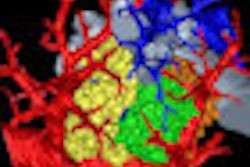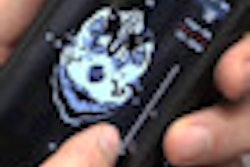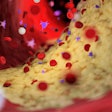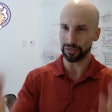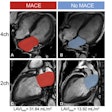The growing power of advanced visualization technology will be ever-present in the scientific program at this month's RSNA meeting in Chicago. Hot topics this year include computer-aided detection (CAD) and computer-aided diagnosis (CADx) technology, as well as quantitative imaging. Look for a range of papers on CAD and, in particular, CADx, as researchers increasingly explore the use of computer-aided technology to assist in diagnosis, not just detection.
The growing power of advanced visualization (AV) technology will be ever-present in the scientific program at this month's RSNA meeting in Chicago.
Hot topics this year include computer-aided detection (CAD) and computer-aided diagnosis (CADx) technology. Just a few years ago, CAD research seemed to be in decline, but that's clearly no longer the case. Look for a range of papers on CAD and, in particular, CADx, as researchers increasingly explore the use of computer-aided technology to assist in diagnosis, not just detection.
Quantitative imaging also is the focus of a flurry of research activity, with several talks highlighting tools for assisting in quantitative assessment of tumor burden to evaluate cancer treatment response. You'll also want to stop by the Quantitative Imaging Reading Room in the Lakeside Learning Center to browse the showcase for products and applications highlighting quantitative analysis.
Refresher courses
A dizzying array of AV refresher courses awaits RSNA 2012 attendees in Chicago, highlighted by a veritable smorgasbord of quantitative imaging sessions. A refresher/informatics course on quantitative medical imaging for clinical research and practice gets the action under way on Sunday, November 25 (11:00 a.m.-12:30 p.m., ICIA11, Room S401CD).
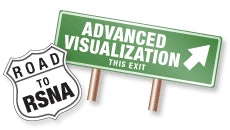
Those with an interest in 3D ultrasound won't want to miss a Sunday refresher course on 3D imaging in women's health (2:00 p.m.-3:30 p.m., RC110, Room S403A). A hands-on workshop on advanced image analysis on Monday, November 26, awaits those looking for some experience working with applications such as automated stent planning, multimodality image fusion, and treatment planning (8:30 a.m.-10:00 a.m., RC253, Room S401CD).
A course on quantitative imaging in ultrasound also will be presented Monday morning (8:30 a.m.-10:00 a.m., RC225, Room S102D). In addition, a talk on quantitative image analysis for image retrieval, decision support, and knowledge discovery will be included in a refresher course on decision support in clinical practice (8:30 a.m.-10:00 a.m., RC226, Room N229).
Advanced imaging techniques will be covered in a course on practical informatics for the practicing radiologist, held in conjunction with the Society for Imaging Informatics in Medicine (SIIM) (12:30 p.m.-2:00 p.m., ICII22, Room S501ABC).
A CT colonography update is the subject of a refresher course on the morning of Tuesday, November 27 (8:30 a.m.-10:00 a.m., RC309, Room E450B), while quantitative imaging in dynamic contrast-enhanced MRI (DCE-MRI) will be discussed in another course (8:30 a.m.-10:00 a.m., RC325, Room N229).
Tuesday afternoon brings a refresher/informatics course on 3D interactive visualization of DICOM images for radiology applications (12:30 p.m.-2:00 p.m., ICIA32, Room S401CD). Later, a refresher course will examine the use of quantitative imaging in FDG-PET (4:30 p.m.-6:00 p.m., RC425, Room S102D).
There's also no shortage of AV refresher courses to choose from on Wednesday, November 28. 3D ultrasound will be included in a morning refresher course on the frontiers of ultrasound (8:30 a.m.-10:00 a.m., RC510, Room N229), while 3D techniques in cancer imaging will be highlighted in a refresher course on advances in cross-sectional imaging (8:30 a.m.-10:00 a.m., RC518, Room N230).
Also, a refresher course is scheduled on the topic of new trends in breast CAD (8:30 a.m.-10:00 a.m., RC521, Room N226). Another hands-on-workshop on advanced image analysis will be held on Wednesday morning (8:30 a.m.-10:00 a.m., RC553, Room S401CD), as will an interactive session on quantitative imaging in oncology (8:30 a.m.-10:00 a.m., RC517, Room S505AB).
The informatics issues associated with quantitative imaging will be the focus of a Wednesday morning refresher course (8:30 a.m.-10:00 a.m., RC525, Room S102D).
"Quantitative Imaging: A Revolution in Evolution" is the title of a refresher course held in conjunction with SIIM on Thursday, November 29 (8:30 a.m.-10:00 a.m., RC626, Room N229). The use of quantitative imaging in volumetric CT as a biomarker for disease also will be featured in a morning course (8:30 a.m.-10:00 a.m., RC625, Room N226).
Those staying through Thursday will be interested in quantitative imaging refresher courses on lung disorders (4:30 p.m.-6:00 p.m., RC717, Room S504CD) and functional MRI (4:30 p.m.-6:00 p.m., RC725, Room S404CD).
If you're still in Chicago on Friday, November 30, there's a quantitative imaging refresher course on diffuse lung disease assessment using CT (8:30 a.m.-10:00 a.m., RC825, Room E350).
See below for previews of advanced visualization-related scientific papers and posters at this year's RSNA meeting.
To view the RSNA's listing of abstracts for this year's scientific and educational program, click here.






